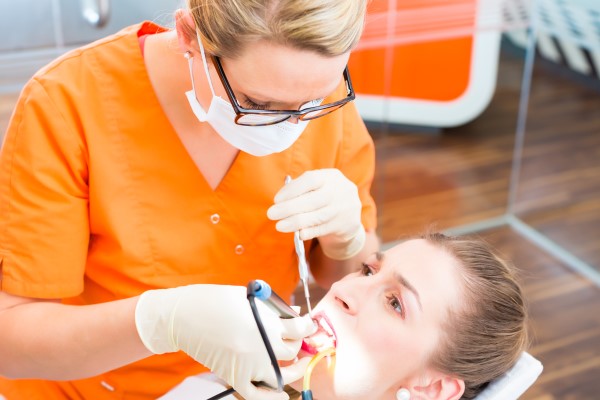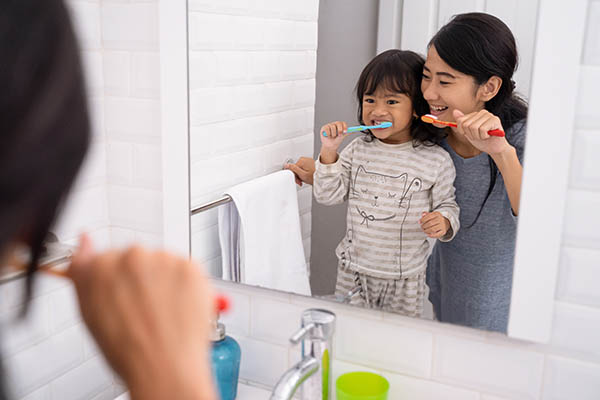How Often Should I Get a Dental Cleaning?

A dental cleaning and check-up should be done at least once or twice a year. Even if you practice an excellent oral hygiene routine at home, it is advisable to have a dentist perform a careful exam. The dental appointment can help identify developing oral issues before they worsen. One way to keep your oral cavity in good condition is to visit the dental office regularly for dental cleaning. But how often should you book that appointment?
The importance of dental cleanings
It is vital to get your teeth professionally cleaned to complement home oral care. The dentist or dental hygienist handles teeth cleanings in the dental office. This method of teeth cleaning removes hard food particles in between the teeth and in crevices that are unreachable by regular toothbrushes. It not only cleans the teeth but also aids in the prevention of gum disease.
Dental cleanings are important to keep patients' teeth and gums healthy. They are a vital part of one's overall oral care regimen because they help remove plaque and tartar accumulation, which contributes to oral issues such as tooth cavities. There is also a link between oral health and general well-being.
When a person's teeth and gums are unhealthy, studies show that it is likely that their poor oral health will lead to poor physical health, such as heart disease or diabetes. Cleanings will also help to minimize any unsightly discoloration on the teeth, ensuring patients can smile confidently.
The frequency of dental cleanings
The regularity of cleanings depends on each dental patient's specific oral needs since everyone is unique. Some patients are more vulnerable to dental problems, necessitating more frequent visits to a dentist. Many patients experience fewer tooth problems, which means they can get away with having their teeth cleaned less often.
Patients should schedule a professional dental cleaning every six months, according to general recommendations. Although this is perfect for most patients, others will need to visit every three months, while some will only need to visit every nine to twelve months.
After an initial dental deep cleaning, the general dentist may prescribe more or fewer regular cleanings. If a deep dental cleaning happened only once and the patient's oral health was in good shape, then they might not need frequent dental cleanings. On the other hand, if the patient has undergone more than one dental deep cleaning previously, then they may need regular cleanings as frequently as every three months.
Procedures involved in a dental cleaning
These are the standard phases of a dental cleaning; however, the dentist's exact process may differ. This whole procedure rarely takes more than an hour. The dental professional might apply a little numbing agent to the teeth and gums for patients with sensitive teeth.
Scaling and polishing
During this process, the dentist will scrape plaque and tartar from the teeth. Special tools are available to remove plaque from hard-to-reach places in the oral cavity. The dental professional will use flossing equipment and techniques to clean in between the teeth as well.
The hygienist may utilize a Prophy-Jet, a device that blasts away plaque, soft debris, and stains using a combination of water, abrasive powders, and compressed air. As a last step, they will rinse the patient’s mouth. The next step is polishing. A revolving head and dental paste are used to buff the teeth to a brilliant sheen.
Fluoride treatment
The dental professional may recommend fluoride therapy to protect the teeth from decay. Fluoride is available in different forms, including paste, gel, and varnish. Patients will also get advice on how to maintain good oral hygiene between visits to the dentist and products that may help.
Ahead of the next cleaning appointment
Patients need to take care of their teeth and gums to maintain a healthy oral cavity. Patients should clean their teeth properly at least twice a day with a soft-bristled toothbrush and fluoride toothpaste. Flossing at least once a day is also important. A good mouthwash can help limit the activity of unhealthy bacteria and freshen the breath.
Final note
Professional dental cleanings are a useful tool for maintaining good oral hygiene. Your dentist can best advise you on how often you should have this done based on your specific situation. If you want to know how often you should have your teeth cleaned depending on your dental health, family history, and risk factors for cavities and gum disease, you should talk to your dentist.
If you have not visited the dental office for dental cleaning in the last year, you should schedule one as soon as possible to keep your oral health in good condition.
Request an appointment here: https://www.mytotaldentistry.com or call McCarthy Dentistry at (740) 546-5178 for an appointment in our Marietta office.
Check out what others are saying about our dental services on Yelp: Dental Cleaning in Marietta, OH.
Recent Posts
Do you remember when your last dental cleaning was? Read on to learn about the importance of getting this done regularly. Getting a professional dental cleaning on a regular basis is important for your oral health, even if you have an excellent daily oral hygiene regimen. These dental visits should generally be scheduled every six…
Professional teeth cleaning is a standard part of routine dental appointments. Oral professionals recommend making at least two trips to the dentist each year so your mouth can be examined and your teeth cleaned.Professional teeth cleaning is a preventative dental procedure that typically takes less than an hour to perform. Here are the answers to…
Tooth cavities can not only be an embarrassment but may also cause a lot of pain if the situation is left unattended. Tooth cavities are caused by harmful bacteria that build up on your teeth as a result of food particles being lodged in the teeth. The bacteria on the teeth mainly feed off of…
Dental care during pregnancy can be scary for mothers that are expecting, but need not worry. It is still important to maintain good oral hygiene even when carrying a baby. Taking preventative measures in order to maintain good dental health while pregnant is absolutely necessary because if an expecting mother were to have an infection…


